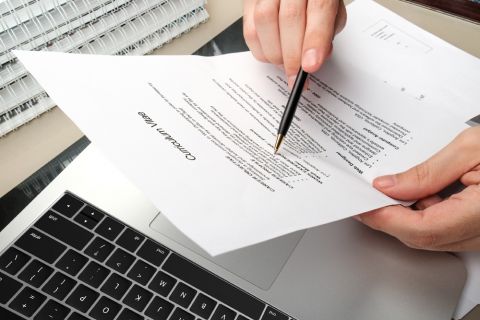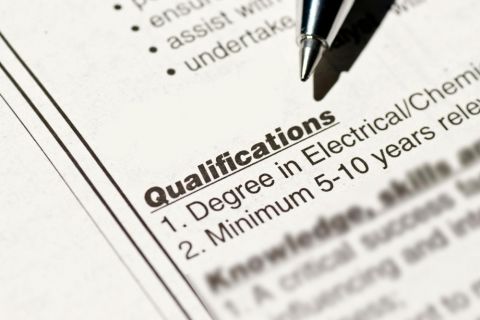Improving Your CV
A well written CV is the first step towards grabbing the attention of potential employers.
Our experts understand the intricacies of CV writing and can offer valuable tips on how to make yours stand out.
Showcase Your Skills
From highlighting your key skills and accomplishments to tailoring your CV for specific roles, we'll guide you through the process of composing an impressive document that effectively showcases your unique strengths and experiences.
The 8 Essential Steps to take


Your Profile
Capture the attention of employers by writing an attractive profile section that highlights your key achievements and what motivates you and sets you apart from other candidates.
Use a few sentences to summarise your personal and professional strengths, as well as your aspirations for your next role. This brief profile should be tailored to the job that you are applying for so avoid using general phrases that many other candidates will use.
This is your opportunity to grab the recruiters interest.

Presentation
Given that employers and recruiters receive numerous CVs daily, it's crucial to make yours visually appealing, concise, and easy to navigate. Incorporate bullet points, bold headings, and underlined key points to enhance readability.
List your education and experience in reverse chronological order to ensure a logical flow.
Once you're done, put yourself in the shoes of an employer and ask yourself if your CV would inspire you to pick up the phone and call. Remember, a simple spell check isn't enough - ask someone else to proofread your CV for errors and clarity.
The Right Impression
We see CVs all the time, so here are some key tips on ensure you give the right impression, and nothing gets misinterpreted or works against you.
Be very careful if you are stating your reasons for leaving your current role in your CV. They can easily be misinterpreted, however, if you are changing industry or role dramatically or moving from one area to another it could be handy to include an explanation as to your reasons why.
Next, don’t give the game away too early by talking salary.
Salaries vary and so does the overall flexibility, package and career progression on the job you are applying for or interested in.
So be open to roles and work with the Recruiter or Prospective Employer to ensure your next move is the right one, away from just a pay increase.

Always be constructive and positive where possible about your positions in your CV and at interview. Jobs sometimes don’t work out, but focus on the value you added to previous roles, and how they were a stepping stone to where you are now, rather than blaming ex colleagues or toxic environments.
Focus on where you want to be rather than where you have been.

Qualifications and Training
The significance of listing your qualifications and training depends on the specific role you're applying for. Certain positions require specific qualifications, so it's wise to showcase your suitability early on.
Include relevant qualifications, professional memberships, attended courses, and noteworthy skills like languages and technical expertise.
Always be honest, as employers can easily verify these details and may request evidence of your qualifications.

Experience
When listing your work experience, start with your most recent position and provide the role title and dates of employment.
Outline your main responsibilities, achievements, duties, and skills, focusing on those that are most relevant to the job you're applying for.
If you have any gaps in your employment history, address them directly to avoid potential questions later on.

Cover Letter
Depending on the specialisation or specificity of the role, it may be beneficial to include a tailored cover letter or appendix that highlights specific skills or broader aspects of your background.
If you have over 20 years of experience, for example, condensing it into 3-4 pages can be challenging. In such cases, providing additional information in a separate document allows you to customise your application and ensure employers don't miss out on the skills and experience they're seeking.

References
You can choose to either list your references directly or state 'references available on request'.
Ensure that your referees are prepared to respond to enquiries promptly.
Having this information readily available to the employer can expedite the application process or help seal the deal.











